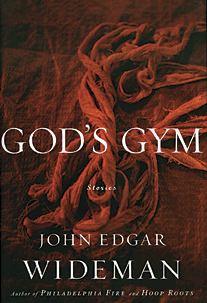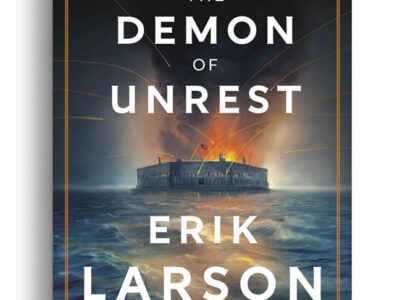Tentative tributes to the power of faith and love.

God’s Gym: Stories
By John Edgar Wideman C’63 Hon’86
Houghton Mifflin, 2005. $23
By Julia M. Klein | It’s always heavy lifting trying to distinguish the autobiographical from the invented in John Edgar Wideman’s fiction—and God’s Gym, his first short-story collection in more than a decade, may not be the simplest place to start. The characters and events and settings evoke Wideman’s life, with its litany of loves and losses. The narration is often first-person. Sometimes, the narrator even shares the author’s name.
In Brothers and Keepers, the poignant 1984 memoir that is still Wideman’s bestselling work, he tellingly suggests that writing may have helped him transcend the forces that pulled his brother, Robby, towards a robbery-murder and life imprisonment. At the same time, he asks: “Wasn’t there something fundamental in my writing, in my capacity to function, that depended on flight, on escape? … Wasn’t writing about people a way of exploiting them?”
These questions continue to weigh on Wideman, a Rhodes Scholar and MacArthur Foundation Fellow who was both a Penn undergraduate and the first director of the University’s Afro-American Studies Program (now the Center for Africana Studies). For all his literary honors—he has been a two-time recipient of the PEN/Faulkner Award and a National Book Award finalist—Wideman’s escape from his family and his past has the feel of something abortive, incomplete. The fate of his brother was echoed all too closely by that of his son, Jacob, who in 1986 stabbed an acquaintance to death and was later sentenced to life in prison. The shock waves of these tragedies move like subterranean currents through Wideman’s work, which nevertheless pays tentative tribute to the redemptive power of faith and love.
One of Wideman’s psychological, and literary, strategies is displacement. The first story in the collection, “Weight,” which received a 2000 O. Henry Award, is about the narrator’s mother, a woman of firm religious convictions who trains for calamity as though she resides in “God’s gym.” Wideman writes: “The weights she lifts are burdens—her children’s, her neighbor’s, yours.” In the story, the narrator self-reflexively reads the first portion of the story to his mother. She is not pleased. He has joked about God, in the wrong time and place. “Maybe stories are my time and place, Mom,” he responds, “to say things I need to say.” He is struggling, it turns out, with his own burden: his mother’s mortality. In the end, he imagines himself lifting her casket, the worst weight of all.
The displacement is even more obvious in another powerful story, “What We Cannot Speak About We Must Pass Over in Silence,” which was chosen for Best American Short Stories 2004. It is the arresting tale of a man trying to visit a dead friend’s son in prison, a dream-like alteration of Wideman’s own situation. The story begins with the narrator remembering his friend’s account of what it was like to visit his son—including the “impossible” moment of “taking your first steps away from the prison, first steps back into the world … a blighted world he must make sense of again.” The emotional truth of the story, for Wideman and for us, is palpable.
The title, God’s Gym, gathers metaphorical weight as one reads through the collection, and the losses mount: of a father, health, lovers, friends. In “Are Dreams Faster than the Speed of Light,” mortality again casts its shadow, as a son diagnosed with a terminal ailment schemes to put his dying father—“so present dying, so absent alive”—out of his misery.
Wideman’s prose is ambitious, thorny—sometimes close to impenetrable. In “The Silence of Thelonious Monk,” past and present intermingle, and it’s hard to distinguish memory from fantasy as the narrator mourns the loss of a deep, but barely defined love. The emotions triggering the story are glimpsed only through the scrim of narrative experimentation.
More accessible—to my mind, more successful—is “Sharing,” in which a black male neighbor asks the white female narrator for mayonnaise, and unleashes a meditation on race, marriage, divorce, parenthood, and friendship. With the story’s uncanny ventriloquism and the graceful minor note on which it ends, it represents Wideman at his most compelling.
Julia M. Klein is a cultural reporter and critic in Philadelphia whose work has appeared in The New York Times, The Washington Post, The Wall Street Journal, and other publications.




